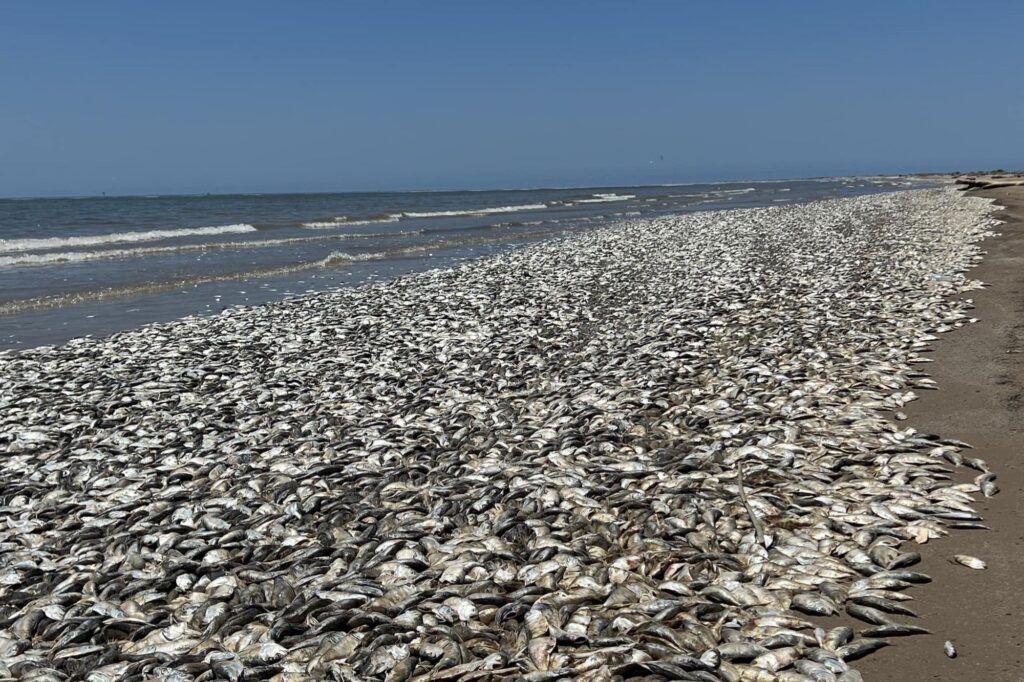Thousands of dead fish washed up on several southeast Texas beaches over the weekend leading park officials to warn beachgoers to stay away. (Imaging the stench that comes with thousands of dead fish, we’re sure they didn’t really need to tell people hit the pool instead.)
Officials of Quintana Beach County Park explained on social media that the massive death toll was likely due to a “perfect storm” of factors.
Warm water
Per the park officials, when the water temperature rises above 70 degrees Fahrenheit, it becomes harder for it to maintain high oxygen levels. So if a school of fish finds themselves in warm shallow water, “the fish will start to suffer from hypoxia. This causes fish to act more erratically, which in turn, further depletes the oxygen from the water.”
Calm seas
Aside from temperature, oxygen levels are affected by surface mixing, “where air meets the water through wind and waves,” wrote park officials. “We have experienced very calm seas inshore for about 3 weeks. There has been very little wave action.”
Cloudy skies
Oxygen in water is created through photosynthesis from microscopic phytoplankton or macroalgae. That is driven by sunlight. “Photosynthesis stops at night and may slow down on cloudy days, but plants and animals in the water continue to respire and consume free oxygen, decreasing the dissolved oxygen concentration,” officials wrote.
— RT (@RT_com) June 13, 2023
Speaking to NPR, Katie St. Clair, the manager of the sea life facility at Texas A&M University at Galveston, says this all might look worse than it is. Most of the dead fish were Gulf menhaden, which are the favorite snacks of 32 different predators, including sea birds, sharks and other large fish. “The flip side is that with this die-off of fish,” explains St. Clair, “there is a huge nutrient pulse into our environment. It’s kind of a circle of life.”
That’s not to say all is hunky dory for all the Nemos and Dorys swimming around out there. “Water can only hold so much oxygen at certain temperatures, and certainly we know that seawater temperatures are rising,” St. Clair said. “It is concerning and something that needs to be monitored.”
